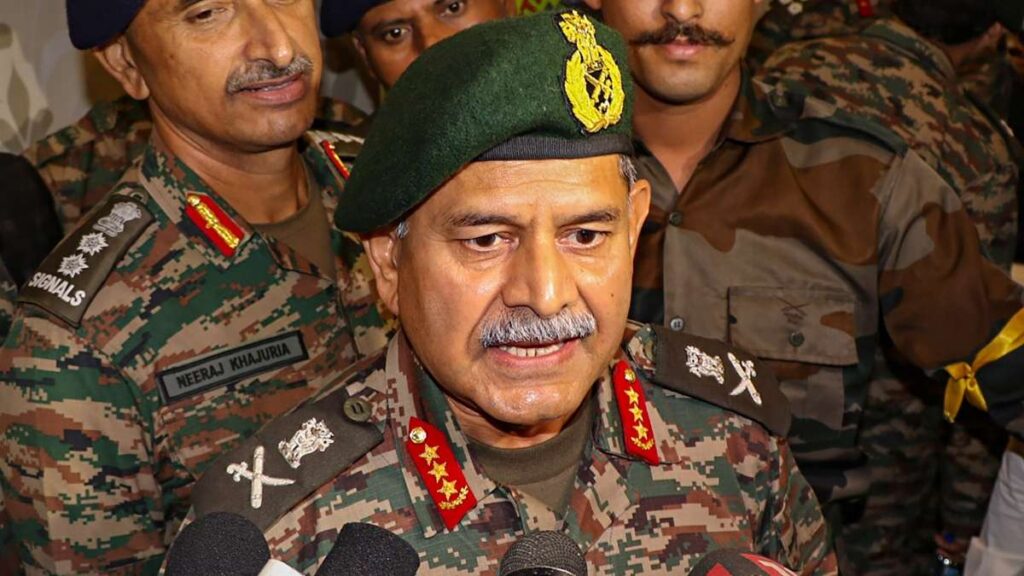Chief of Army Staff General Upendra Dwivedi delivered a compelling message focused on restoring trust, peace, and tranquillity. His visit comes amidst ongoing tensions and unrest in the region, which has been plagued by violence and ethnic conflicts over the past several months. General Dwivedi’s remarks are aimed at fostering reconciliation and stability as the state grapples with its challenges.
The Current Situation in Manipur
Manipur, located in the northeastern part of India, has been experiencing significant unrest due to ethnic clashes and political turmoil. The region has witnessed sporadic violence involving different communities, leading to casualties, property damage, and disruptions to daily life. The ongoing conflict has drawn national and international attention, with calls for intervention and resolution growing louder.
The conflict has roots in long-standing ethnic rivalries, socio-economic disparities, and political disagreements. Efforts to address these issues have been hampered by mistrust between communities and a lack of effective dialogue. The state government, along with various stakeholders, has been working to bring about peace, but achieving lasting stability has proven challenging.
General Dwivedi’s Visit and Address
General Upendra Dwivedi’s visit to Manipur was part of a broader initiative by the Indian Army to support peacekeeping and stability operations in the region. During his visit, General Dwivedi met with local leaders, military personnel, and community representatives to discuss the current situation and outline the Army’s role in promoting peace.
In his address, General Dwivedi emphasized the importance of trust and dialogue in resolving conflicts. “Trust is the foundation of any peaceful society,” he said. “Our primary objective is to restore peace and tranquillity in Manipur. This can only be achieved through mutual understanding, respect, and cooperation among all communities.”
The General acknowledged the complexities of the situation in Manipur and the challenges faced by both the military and civilian authorities. He highlighted the Army’s commitment to supporting the local population and working alongside other stakeholders to address the root causes of the conflict.
Promoting Dialogue and Cooperation
One of General Dwivedi’s key messages was the need for open dialogue between different ethnic and community groups in Manipur. He urged all parties involved to engage in constructive conversations to address grievances and find common ground. “Dialogue is essential for resolving misunderstandings and building bridges between communities,” he stated. “We must create an environment where everyone feels heard and valued.”
The General also underscored the importance of cooperation between the military, government agencies, and local organizations. “Effective peacekeeping requires a collaborative approach,” he said. “The Army is here to support and facilitate the efforts of all stakeholders working towards peace.”
The Role of the Army in Peacekeeping
General Dwivedi outlined the Army’s role in supporting peacekeeping and stability operations in Manipur. The Army has been actively involved in providing security, conducting humanitarian aid missions, and assisting in disaster response efforts. “Our role is to ensure the safety and security of the people of Manipur while supporting the broader peace process,” he said.
The Army has also been working on community outreach programs to build trust with local residents. These programs include medical camps, educational initiatives, and infrastructure development projects. By engaging with the community and addressing their needs, the Army aims to foster goodwill and support for peace efforts.
Challenges and Future Outlook
While General Dwivedi’s visit and message are seen as positive steps towards peace, achieving lasting stability in Manipur will require sustained efforts from all involved parties. Addressing the root causes of the conflict, promoting inclusive governance, and ensuring equitable development are critical to long-term peace.
The state government has pledged to continue working towards reconciliation and addressing the concerns of different communities. Efforts to strengthen the rule of law, enhance economic opportunities, and promote social cohesion will be essential in achieving lasting peace.
Community and Stakeholder Reactions
Local leaders and community representatives have responded positively to General Dwivedi’s visit and message. Many have expressed hope that the emphasis on trust and dialogue will pave the way for a more peaceful and stable environment. “General Dwivedi’s words are encouraging,” said one community leader. “We need to work together and build trust to overcome our differences and achieve lasting peace.”
The General’s visit has also been welcomed by the military personnel stationed in the region. The morale of the troops has been boosted by the recognition of their efforts and the clear commitment to peacekeeping.
Chief of Army Staff General Upendra Dwivedi’s emphasis on trust, peace, and tranquillity in Manipur is a significant step towards addressing the ongoing conflict in the state. By promoting dialogue, cooperation, and community engagement, General Dwivedi’s visit highlights the Army’s role in supporting peace and stability. As Manipur navigates its path to recovery, the collaborative efforts of all stakeholders will be crucial in building a more harmonious and prosperous future for the region.

